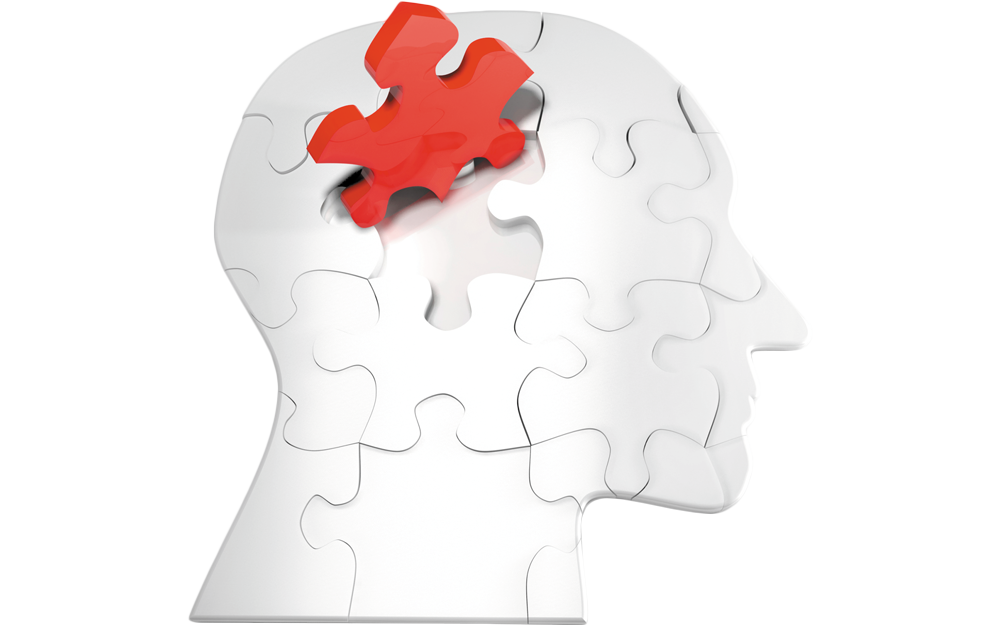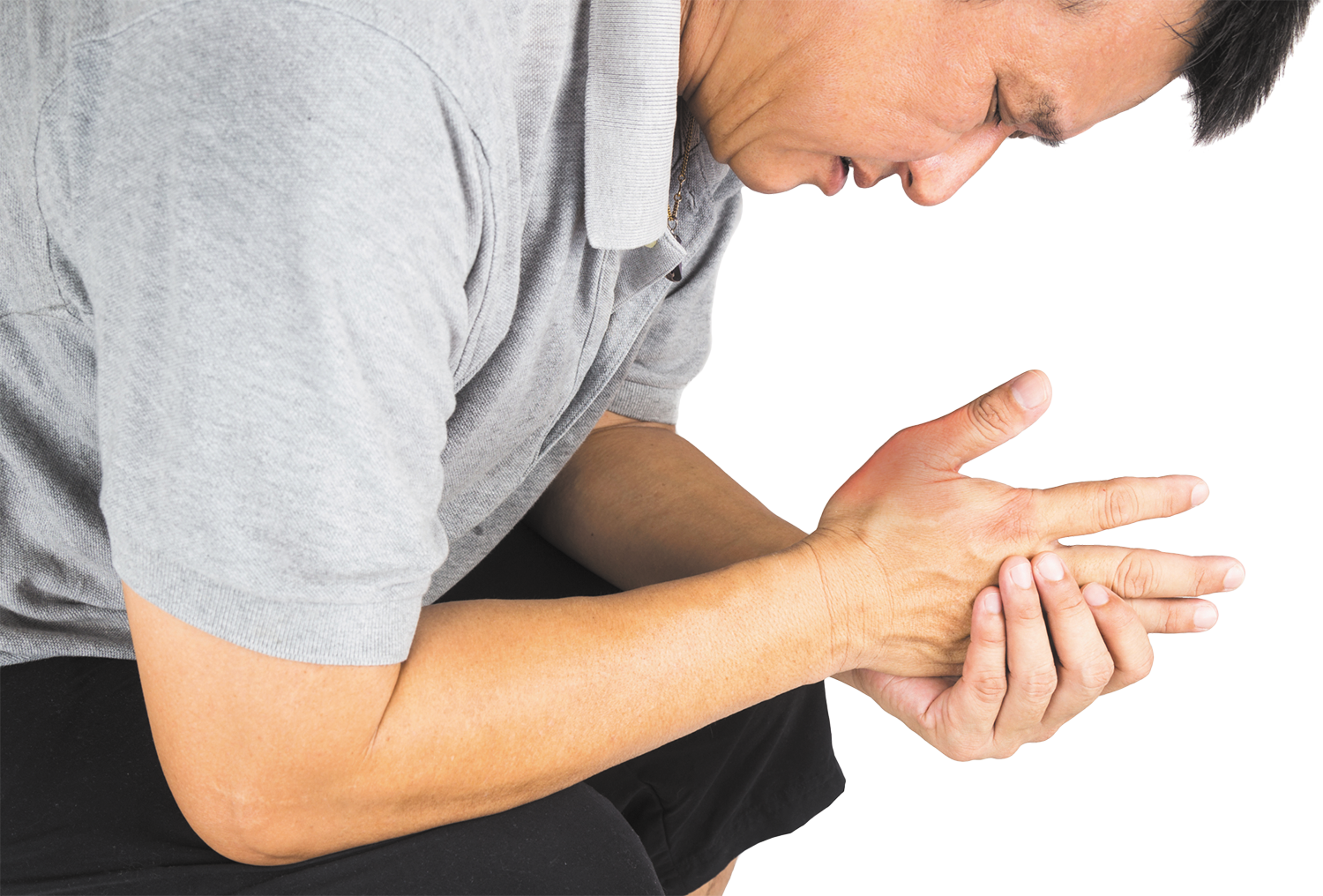
Wildfires: How to cope when smoke affects air quality and health

What can magnesium do for you and how much do you need?

Dry socket: Preventing and treating a painful condition that can occur after tooth extraction

What happens during sleep �� and how to improve it

How is metastatic prostate cancer detected and treated in men over 70?

Could biofeedback help your migraines?

What is autism spectrum disorder?

Plantar warts: Options for treating this common foot condition

Cancer survivorship: What comes next after treatment

Nutritional yeast: Does this savory, vegan seasoning pack a nutritional punch?
Diseases & Conditions Archive
Articles
A new look at treating Alzheimer's disease
Image: Thinkstock
Tau proteins, and not necessarily beta-amyloid, may be the key to unlocking a viable treatment.
Alzheimer's disease affects more than five million people, and that number is expected to more than double by 2050. While there is no cure, attention has refocused on what many researchers believe is a major player in Alzheimer's: tau proteins.
Heart disease: All in the family history
Image: Thinkstock
Is heart disease in your genes? And if so, can you do anything about it?
Cardiovascular disease continues to be the No. 1 killer of men, and while strides have been made to reduce the risk of heart attack and stroke, one area that remains elusive is genetics.
Fight back against gout
This common inflammation of the joints can be treated and managed with medication and lifestyle changes.
Gout affects more than eight million adults, six million of whom are men. It often strikes suddenly, like flicking on a light switch, and the pain is severe, with intense swelling and redness.
Food choices can dictate if you get gout, as high intake of organ meat, shellfish, and alcohol can raise your risk. But diet is only a part of it. "There is a direct relationship between advancing age and gout," says Dr. Robert Shmerling, clinical chief of rheumatology at Beth Israel Deaconess Medical Center.
When to treat a narrowed heart artery
Ask the doctor
Q. A test showed a 50% blockage in one of my major heart arteries. That sounds pretty bad to me, but the cardiologist said I didn't need a stent. Why?
A . Your reaction is not unusual. Many people find it hard to understand why that degree of blockage wouldn't be treated with a stent—a tiny, flexible mesh tube that props open a newly cleared artery. But while stents can be helpful, they're not risk-free. The procedure to open the artery (angioplasty) involves threading a balloon-tipped tube from the wrist or the top of the thigh up to the heart. Minor risks include discomfort and bleeding at the insertion site. Rare but more serious risks (such as a heart attack) occur in about 3% of people undergoing the procedure. And to prevent blood clots at the stent site, people need to take anti-clotting medications for up to a year afterward.
Artery disease below the belt
Peripheral artery disease can be debilitating and dangerous.
Most often, concern about atherosclerosis (when fatty deposits clog arteries) centers on the coronary arteries, which serve the heart. But the arteries outside the heart—the so-called peripheral arteries—are also vulnerable.
When you're active, your leg muscles need extra oxygen. But narrowed arteries in the legs can't deliver enough blood and oxygen to keep up with the demand. The result is pain in the calf, thigh, or buttock while walking that goes away with rest. Known as claudication, it's the classic symptom of peripheral artery disease (PAD). But many people with PAD either don't have symptoms or mistake them for another problem. As a result, PAD often goes unrecognized.
Sleep apnea solutions that lower cardiovascular risks
Image: Bigstock
Devices to treat nighttime breathing problems may help lower blood pressure and reduce the harm to your heart.
Peaceful slumber is often a pipe dream for people with obstructive sleep apnea. More than 25 million Americans have this problem, in which the tongue or throat tissue temporarily blocks the airway during sleep. The resulting pauses in breathing (called apneas) lead to explosive snoring or gasping for breath—sometimes more than 30 times per hour.
Numb hand: Should you worry?
Ask the doctor
Q. My right hand goes numb when I open a can or use hand tools. Is this something I need to worry about? Do I have carpal tunnel syndrome?
A. The hand receives its sensory information from three different nerves, and irritation of any of them can lead to numbness. In the hand, numbness is often related to the way that the nerve is compressed or squeezed slightly when you bend your wrist, as happens when you open a can. Excess vibration or repetitive hand motion when you use tools may also cause numbness.
Got a bum knee? Here is what to do
If knee pain and swelling are severe an are not getting better, see your primary care doctor for a thorough evalucation. Image: Thinkstock
Arthritis is not the only possible cause of knee pain, swelling, and disability.
Deep-vein blood clots: Know the signs
Image: Thinkstock
Clots in the lungs are twice as deadly as heart attacks.
If you scrape your leg, blood clots come to the rescue to heal the wound. But if a blood clot forms deep inside a leg vein, it's a different story. Known as a venous thrombosis—a term meaning "blood clot in a vein"—this type of clot can cause pain, swelling, and redness in the affected limb. When one forms in a leg or arm, it's called deep-vein thrombosis (DVT). But the real threat happens if the clot breaks off and travels to the lungs, causing a pulmonary embolism.
A different kind of heart attack
Image: Thinkstock
Squeezing chest pain isn't always from a blocked artery.
Classic heart attack symptoms—severe pressure, heaviness, or pain in the chest—most often arise from a blockage in a coronary artery that prevents blood from reaching the heart muscle. But a lesser-known condition, called takotsubo cardiomyopathy, can produce the same sudden heart symptoms even when the coronary arteries are clear.

Wildfires: How to cope when smoke affects air quality and health

What can magnesium do for you and how much do you need?

Dry socket: Preventing and treating a painful condition that can occur after tooth extraction

What happens during sleep �� and how to improve it

How is metastatic prostate cancer detected and treated in men over 70?

Could biofeedback help your migraines?

What is autism spectrum disorder?

Plantar warts: Options for treating this common foot condition

Cancer survivorship: What comes next after treatment

Nutritional yeast: Does this savory, vegan seasoning pack a nutritional punch?
Free Healthbeat Signup
Get the latest in health news delivered to your inbox!
Sign Up










